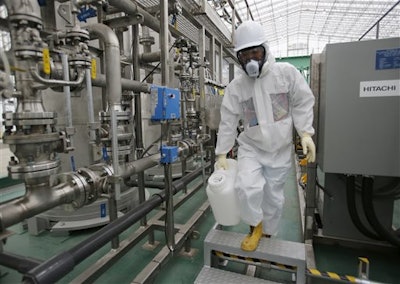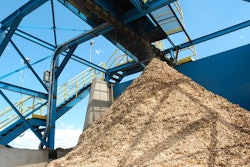
MANILA, Philippines (AP) — Despite the Fukushima nuclear disaster that devastated northeastern Japan in 2011, interest in nuclear power has increased significantly, mainly in Asia, the U.N. nuclear watchdog chief said Monday.
International Atomic Energy Agency chief Yukiya Amano said the appetite for nuclear power has grown in Asia because of the need to fuel the region's bustling economies and demand for relatively clean energy amid concerns about climate change.
Globally, at least 30 developing countries are seriously considering the use of nuclear power, Amano said, adding that more than 440 nuclear power plants are currently operated worldwide.
"After the Fukushima Dai-chi accident, some believed that is the end of nuclear power. It was not the case," Amano told a news conference in Manila, where he attended a conference and discussed with Philippine officials how to harness nuclear technology for economic progress.
"Nuclear power plants or use of nuclear power is increasing significantly," he said.
The meltdowns at the Fukushima Dai-ichi nuclear power plant in northeastern Japan following an earthquake and tsunami displaced more than 100,000 people due to radioactive contamination and spurred a national debate over resource-scarce Japan's reliance on nuclear power.
The plant "was not well prepared for the severe natural hazard," Amano said. Following the disaster, Amano said he visited nuclear plants in several countries and saw that considerable safeguards had been introduced.
"After Fukushima, lots of improvements have been made," he said.
Each government, he said, ultimately has to decide whether to embrace nuclear energy for power generation based on many factors, including the availability of other options like hydropower.
Japan remains committed to nuclear power despite the meltdowns at Fukushima. Only two of the country's 43 workable reactors are currently online, with the others shut down pending safety checks, but the government wants to restart as many as possible.
To offset the shortfall in power output, Japan ramped up imports of oil and gas and fired up more thermal power plants, slowing progress toward reducing its emissions of greenhouse gases.
Countries, meanwhile, need to ensure the security of nuclear power plants and materials amid terrorism threats, Amano said, adding that the IAEA has provided training and other assistance to help governments deal with such concerns.
"If nuclear materials fall into the hands of terrorists, that can be used for dirty bombs," he said. "If it happens in a big city, that can cause a panic."
"Terrorists always target the weakest link, so we need to be well prepared for that to address nuclear security," he said.






















